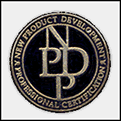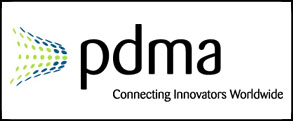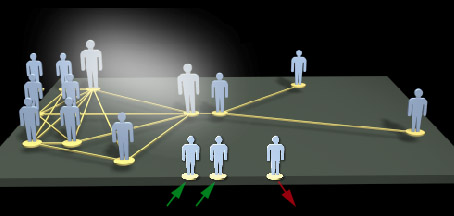OpLaunch Media Room (Press Room)
This collection of information is intended for reporters, journalists, and event planners.
OpLaunch Company Information
The company's goal is to improve launch results by improving the new product development ecosystem. While others emphasize processes or tools or business models, OpLaunch strives to enhance the capabilities of individuals and the quality of their interactions within the networks that develop new products.
OpLaunch enhances the capabilities of individual contributors so that they can shift from their specialist roles to that of new product developers so that the interplay of everyone's efforts (plans, decisions, actions,... ) is more synergistic throughout development. The capabilities of individual contributors are enhanced to maximize the potential for launch success.
OpLaunch emphasizes an interdisciplinary approach and system-level results.
New Product Development definitions
Within the context of NPD:
- New product development (NPD): a constrained discovery process in search of launch success. Typically NPD begins with a notion that evolves to a concept (that can be summarized in a page or two) and transitions to commercialization. Since there are so many possible permutations (such as the choice of people, strategies, tactics, decisions, plans, and objectives) during development, one's approach (which may also be associated with terms such as company culture) is a critical success factor.
- Development: Successful development is the selection of an idea and its subsequent transformation to a much more valuable product. NPD starts with ideation. NPD ends when launch ends. Development decisions are driven by questions about what to build for future success. In contrast, legacy sales and marketing efforts strive to sell more of what exists.
- Constrained: NPD activities are limited by a scarcity of resources such as time, money, or talent. There are many reasons for NPD failure.
- New: Most often, a product change is needed because either the current products are not sufficient or the perception is that the current products will be unacceptable soon.
- Launch: The validation portion of a new product development project. The portion of development defined by the bookends of "initial sales of the product" and the "transition from the development team" to the "product delivery organization." By the time that departments such as marketing, sales, manufacturing, distribution, and shipping have integrated the "new" product with the legacy products, launch is complete. During launch, it is common for sales, support, and communication specialists to schedule events and activities designed to promote more sales but the preparation for such events may be distracting to some members of the development team..
- Discovery process in search of: NPD is non-deterministic. All of the new product 'requirements' can't be gathered from interviews before launch. 'Best practices' are context dependent. There are unknowns throughout development. Experimentation occurs during development. Feedback from experiments produces insights that evolve development plans and deliverables.
- Collaborate: Working together for the shared goal. In NPD, this objective is launch success. Hopefully, cooperation produces synergy - a situation where the value of the new product is greater than the sum of the contributions of the individual developers.
- Developers: The contributors that add value to the project. They provide individual expertise. Development teams usually include engineers, programmers, scientists, domain specialists, and technicians. In the preferred scenario, the team collaborates to produce significant value. The team attempts to discover and deliver the product that will be desired in the future.
- Achieve: Success is not guaranteed. A formula or template can be a guideline or a mistake. Adjustments to plans will be required. Most of the time, diligence, creativity, and experimentation are required.
- Success: Most often, the undisputed validation is "abundant sales." To maximize the probability of launch success, there are many development decisions and actions plus factors that are outside of the developer's control. Engaging the appropriate team and enlisting the appropriate leadership maximizes the probability of success.
- Optimization: A deliberate effort to improve continually. The rigorous, context-sensitive selection of the better development alternatives to maximize the potential for launch success. It includes engaging the appropriate developers, encouraging collaboration, and improving resiliency.
Services
OpLaunch helps indiviuals improve their Development Experiences (DX) through a development options framework within consulting, coaching, and training formats. We help individuals and groups in online and on-site sessions in hourly, project, or retainer arrangements.
Contact Information
For additional information, contact mark_hart@oplaunch.com, 3059 Route 136, Suite A, Finleyville , PA , 15332 United States of America
Phone: 724 258 8231
Tweets: @OpLaunch
Biography of Mark A. Hart, OpLaunch Founder

Mark A. Hart is a new product developer that has contributed to the sales of billions of dollars in new products and services for technology companies. He is the Founder of OpLaunch. Since 1983, Mark has contributed to the development and commercialization of technology products (such as measurement systems for scientists and engineers, software, computers, and training applications) that have become global leaders in their categories.
In 2004, Mark became the first Product Launch Editor for Visions Magazine. A current list of publications is available at the OpLaunch web site.
In 2002, Mark obtained New Product Development Professional (NPDP) certification as defined by the Product and Development and Management Association (PDMA). This certification program formally recognizes knowledge, education, and experience in new product or service development.
For 16 years Mark was a Hewlett-Packard employee in the Silicon Valley. This provided the foundation for the optimized product launch methodology that maximizes synergy between departments such as R&D, marketing, manufacturing, and field support.
Mark has designed and operated equipment for NASA. He obtained a Masters degree in chemistry from the University of Arizona and a BS in chemistry from Washington and Jefferson College.
About PDMA and Certification
The Product Development and Management Association (PDMA) is the premier global advocate for product development and management professionals. Their mission is to improve the effectiveness of individuals and organizations in product development and management. This is accomplished by providing resources for professional development, information, collaboration and promotion of new product development and management.
PDMA publications include Visions Magazine and the Journal of Product Innovation Management (JPIM).
For more information about the New Product Development Professional (NPDP) certification, visit the Product Development and Management Association (www.pdma.org) site.


